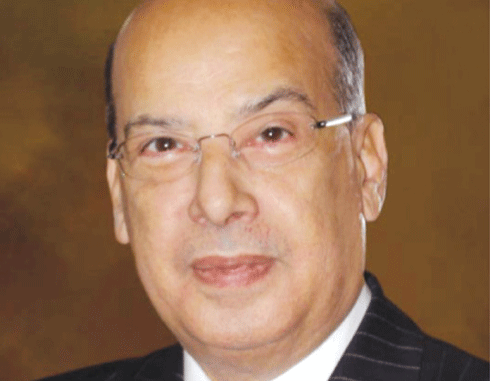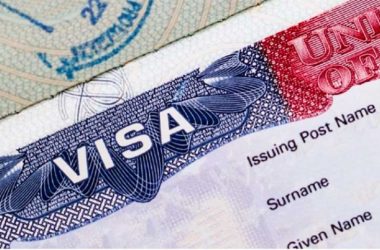
THE Council of the European Union (CEU) published its much anticipated “List of non-cooperative jurisdictions for tax purposes” on December 5.
This particular EU blacklist refers more particularly to what they have described as “Base Erosion and Profit Shifting” (BEPS). It is aimed particularly at companies that enjoy low or no tax status because they are offshore entities, or they operate in a special free trade zone where taxes are not paid, or they are foreign-owned and are given tax concessions not provided to similar domestic operations.
Many of the countries on the list, which includes Barbados, Grenada, St. Lucia, and Trinidad and Tobago in the Caribbean, either cried out in astonishment or disbelief. But not one of them asked what gives the Council of the EU the right to put any country on a black list and to impose sanctions on them for non-compliance with a European Union created criteria on taxation.
Among the countries that immediately reacted was Panama whose President, Juan Carlos Varela, said: “This is a regrettable decision. We feel this is an unfair measure.” He has recalled his Ambassador to the EU for consultations. The Government of the United Arab Emirates was more submissive, saying: “We will continue to work with our international partners on this issue, and are confident that we will be recognised as an internationally compliant partner at the EU’s next review”.
In the Caribbean, Barbados’ Minister of International Business, DonvilleInniss, also said that his country’s listing is “extremely unfortunate and unfair”. He went on to make the point that “when these kind of lists and reports are picked up by other groupings and organisational bodies, including financial institutions”, they could have deleterious effects on investment.
But no one questioned the authority of 28 European countries alone to decide tax standards for the rest of the world, although Innis is reported to have said that he would be calling on the Caribbean Community (CARICOM) to lead regional dialogue on such matters, as the region continued to come under “scrutiny and attacks” from multinational organisations.
Sven Giegold, the financial and economic policy spokesperson of the Greens/EFA group in the European Parliament, described the EU list as “a whitewashed blacklist of tax havens”. Correctly, he said, “Not one of the most important tax havens has been put on the list”, adding, “The list is politically-biased as relevant financial centres like the United States of America are missing”.
Giegold is correct that “relevant financial centres like the United States” do not appear on it. But, EU countries can best flex their considerable collective muscle on small countries; they have skillfully avoided taking on the giants to whom their actions would be a flea on an elephant’s back.
Nonetheless, EU countries are acting in their own interest. They can’t be blamed for that. Blame has always rested squarely with the jurisdictions that have allowed the EU to dictate terms for taxation standards. Repeated calls to take this matter to where it rightly belongs – the United Nations General Assembly where all countries are represented — have fallen on deaf ears.
Therefore, in its 38-page blacklisting document, the EU could say it “welcomes the fact that most of these jurisdictions have chosen to participate in this process and dialogue”. Most of the jurisdictions did just that, depriving themselves of any leg to stand on when they protest in the wake of being named on the blacklist.
Indeed, the Council of the EU is so emboldened by the acquiescence of “most of the jurisdictions” that it has included “tax avoidance” among the matters that they regard as “of crucial importance” to the fight against “the erosion of (EU) member states’ tax base”. Tax avoidance is not a crime and is, and always has been, legitimate in tax planning. But, the EU Council now includes it in their criteria for naming countries that it does not regard as cooperative.
The EU document contains language and instructions to its member states that demonstrates its readiness to exercise its power. For instance, it says that EU countries should take into account their “foreign policy, economic relations and development cooperation” when dealing with blacklisted countries. That could range from cutting off loans and aid to applying sanctions such as withdrawing banking facilities.
Further, the euphemistically-described “defensive measures” that the Council proposes to the EU member states are not limited to the tax area; it could include EU legislative acts in non-tax areas in the future. These non-tax areas have not been defined or limited.
In the tax area, the “defensive measures” include: reversal of the burden of proof, withholding tax measures and special documentation requirements.
Other Caribbean countries are not spared attention. Because of this year’s devastating hurricanes, a few have been given breathing space. So, Anguilla, Antigua and Barbuda, Bahamas, British Virgin Islands Dominica, St. Kitts-Nevis and Turks and Caicos Islands have been put on notice that concerns about them will have to be resolved by the end of next year. Scrutinising them begins in February.
They will all be lining up to comply, notwithstanding Donville Innis’ view that CARICOM should establish a high-level regional team of experts to engage with external parties on behalf of the region.
That was tried in 2000, when the OECD – firmly pushed by the EU – created its blacklist of countries that they claimed were engaging in tax competition that harmed them. But, regional solidarity fractured as, one after the other and under enormous external pressure, each country complied. Their offshore businesses and free trade zones withered and they lost jobs and revenue, but they thought they had no choice then. It is unlikely to be any different now.
Responses and previous commentaries: www.sirronaldsanders.com
(The writer is Antigua and Barbuda’s Ambassador to the US and the OAS. He is also a Senior Fellow at the Institute of Commonwealth Studies at the University of London and Massey College in the University of Toronto. The views expressed are his own.)















Typical Carioca leaders without backbone, lack confidence in their own ability to stand together as region and defend its position in the interest of its people. It is also their failure to trust their own qualified technical personnel advice.
The EU, USA and other blocks will continue to tramp and economically enslave this region until we have leaders that are willing to unite to work together. This will not be the last of unfair and controlling (governing) of the us so call independent countries by the external regional blocks/powers including China.
Alas, Boy Blue your sentiments on Caribbean Unification is the only way forward, however, you are kind and generous with labelling them “spineless” –
backwater amoeba and paramecium seems apt.